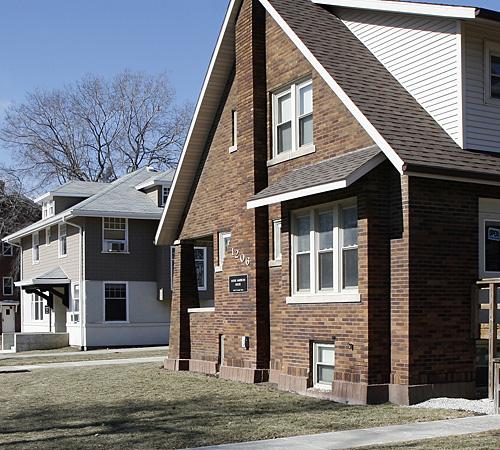Cultural program renewal proposed

The Native American House could benefit from a referendum that would permit the University to charge students $2 to help fund cultural programs hosted by the Nevada Street Cultural Houses. Jeremy Berg
February 14, 2008
A proposed renewal of the cultural programming fee will sit alongside more easily recognizable referendums on this year’s student elections’ ballot.
If approved, the referendum will allow the University to continue charging each student a $2 refundable fee at the beginning of every semester to fund cultural programming.
The fee must be renewed every four years in order to remain valid.
While the referendum is unlikely to receive the amount of attention of more controversial referendums or the Student Senate elections themselves, the cultural programming fee is an essential part of ensuring that University students have access to important programs and events, said Cathy Acevedo, associate dean of students.
“It’s important because, with this fee, anybody affiliated with the University can take advantage of these services,” she said.
Get The Daily Illini in your inbox!
Any student or faculty member, regardless of personal race or ethnicity, can apply for cultural programming money and use it to fund an event centered around Latino, African, Asian or Native American culture.
Proposals are reviewed by members of the centers’ cultural advisory boards, made up in part by student representatives of each of the University’s four cultural centers.
Proposals are then submitted to the dean of students for final approval.
The decision to allow students to control a significant part of the fund distribution came about as the result of University administration’s desire to keep them involved in cultural events on campus.
In recent years, student groups have utilized the funds to attract numerous speakers, musical groups and other acts to campus.
Despite the potential payoff of the fee, a number of misconceptions exist regarding exactly what the money can be used for, Acevedo said.
One commonly misunderstood factor is the relationship between cultural programming fees and the funds collected in the form of the Student Organization Resource Fee. SORF, as it is commonly known, is a $14 refundable fee that is collected from students each semester. Those funds can be applied for and utilized by any registered student organization.
“Some people think that you can’t apply for cultural programming fee as well as SORF money, and that’s not true,” she said. “As long as you meet the criteria for both, you can apply for both.”
Acevedo added that some students have expressed concern that money collected from the fee goes toward “paying the phone bills” of the University cultural centers.
“That’s simply not true,” she said. “100 percent of the cultural programming fee goes directly towards cultural programming. None of it is used for administrative overhead.”
“All of the funds are used through the cultural centers for a really diverse range of programs,” said Adele Lozano, director of La Casa Cultural Latina. “Those programs might not otherwise happen.”






